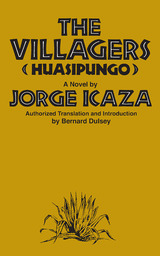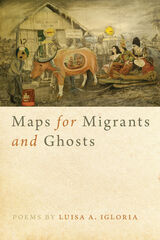3 have author last names that start with I have author last names that start with I

The Villagers is a story of the ruthless exploitation and extermination of an Indian village of Ecuador by its greedy landlord. First published in 1934, itis here available for the first time in an authorized English translation.
A realistic tale in the best tradition of the novels of social protest of Zola, Dostoevsky, José Eustasio Rivera, and the Mexican novels of the Revolution, The Villagers (Huasipungo) shocked and horrified its readers, and brought its author mingled censure and acclaim, when itwas first published in 1934.
Deeply moving in the dramatic intensity of its relentless evolution and stark human suffering, Icaza’s novel has been translated into eleven foreign languages, including Russian and Chinese, and has gone through numerous editions in Spanish, including a revised and enlarged edition in 1953,on which this translation is based, but ithas never before been authorized for translation into English. His first novel, but not his first published work, The Villagers is still considered by most critics as Icaza’s best, and itis widely acclaimed as one of the most significant works in contemporary Latin American literature.
Thirty years after its original publication in Ecuador, The Villagers still carries a powerful message for the contemporary world and an urgent warning. The conditions here portrayed prevail in these areas, even today. The Villagers is an indictment of the latifundista system and a caustic picture of the native worker who, with little expectation from life, finds himself a victim of an antiquated feudal system aided and abetted by a grasping clergy and an indifferent government.

For immigrants and migrants, the wounds of colonization, displacement, and exile remain unhealed. Crossing oceans and generations, from her childhood home in Baguio City, the Philippines, to her immigrant home in Virginia, poet Luisa A. Igloria demonstrates how even our most personal and intimate experiences are linked to the larger collective histories that came before.
In this poetry collection, Igloria brings together personal and family histories, ruminates on the waxing and waning of family fortunes, and reminds us how immigration necessitates and compels transformations. Simultaneously at home and displaced in two different worlds, the speaker lives in the past and the present, and the return to her origins is fraught with disappointment, familiarity, and alienation.
Language serves as a key and a map to the places and people that have been lost. This collection folds memories, encounters, portraits, and vignettes, familiar and alien, into both an individual history and a shared collective history—a grandfather’s ghost stubbornly refusing to come in out of the rain, an elderly mother casually dropping YOLO into conversation, and the speaker’s abandonment of her childhood home for a second time.
The poems in this collection spring out of a deep longing for place, for the past, for the selves we used to be before we traveled to where we are now, before we became who we are now. A stunning addition to the work of immigrant and migrant women poets on their diasporas, Maps for Migrants and Ghosts reveals a dream landscape at the edge of this world that is always moving, not moving, changing, and not changing.

Edgar Allen Imhoff renders a series of touching, colorful vignettes about growing up in southern Illinois during the Great Depression. He writes poignantly of his family and their struggles (including his father’s exhausting but successful effort at self-education) as he revisits his early childhood years in the country and his eventual move to the town of Murphysboro, where he encountered school bullies, outstanding teachers, first love, World War II, and adolescence.
Imhoff contrasts these memories of his youth with events, incidents, and thoughts from his more recent past. While writing a government check with six figures to the left of the decimal, he remembers how his mother once scrounged together thirty cents so Imhoff and his brother and sister could go to the circus with their classmates. Listening to President Carter give a speech in the Rose Garden reminds him of the contrasting elocutionary style of the Reverend William Boatman, the pastor at his country church, which was built by Imhoff’s great-great-grandfather and others.
Through such contrasts, Imhoff not only paints a loving picture of his past, he also comments on the alienation and emptiness that mark many lives in the United States, especially those of modern nomads. Imhoff has himself become a nomad, living far from the land of his birth, enjoying a successful and rewarding career. Yet he is drawn repeatedly to his past, his family, his childhood home, and the intricate combination of events, attitudes, values, and loyalties that influenced and molded him.
READERS
Browse our collection.
PUBLISHERS
See BiblioVault's publisher services.
STUDENT SERVICES
Files for college accessibility offices.
UChicago Accessibility Resources
home | accessibility | search | about | contact us
BiblioVault ® 2001 - 2024
The University of Chicago Press









